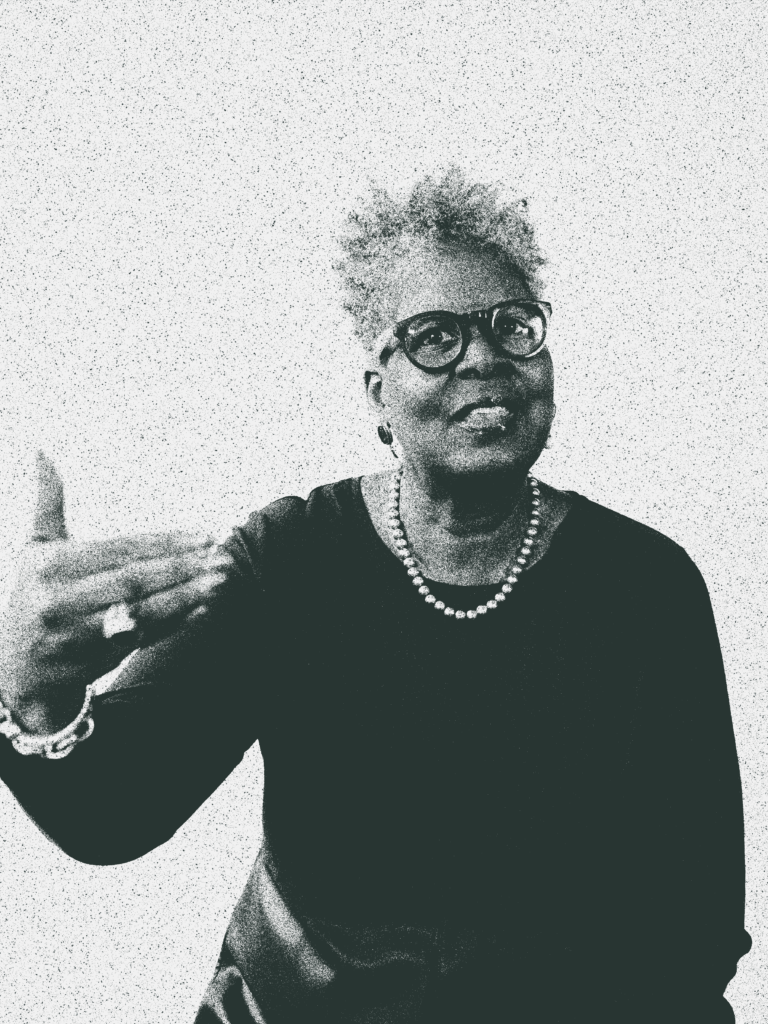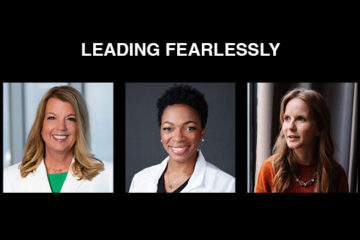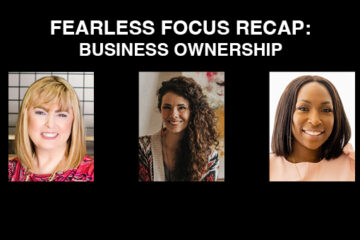As told to Emily Kestel and Jami Milne. Portrait by Jami Milne.

What characteristics do you admire in other women?
Women who speak truth to power, who show up unapologetically.
How do we support the next generation in finding a path to success and fulfillment?
By not creating unrealistic expectations. Everybody’s path is different, and there are different starting points for different people, depending upon what you’re interested in. I think it’s important not to create unrealistic expectations, but to support them in searching through and working through the things that they need to define their own success.
What is your biggest struggle right now?
Planning for retirement. I have worked my entire adult life. So how I prepare myself for succession, how I prepare my organization for succession, and how I create a level of readiness, so that when I walk out the door, I do it without regrets.
What inspires you in life?
I’m inspired by the possibilities. I’m also inspired by the now. There are so many things around us that we take advantage of or take for granted. I’m inspired by what’s happening now and how I can embrace that in a way that allows me to not only transcend where I thought I could be, but how that then creates opportunities for transformation.
What are you least confident about?
Tomorrow. It’s not guaranteed. Too many people around me have had very sudden illnesses that have led to death, or led to compromised health situations. Tomorrow isn’t promised, but I try to always live for tomorrow at the same time.
What’s one experience you’ve had that’s influenced who you are today?
When I first came to Des Moines, I came here to be the executive director of the Solid Waste Authority. I can remember vividly walking into a sea of white male faces that were part of an interview panel. I was an African American woman who really had very little experience in the solid waste world, but certainly knew local government management, systems change, all the things that I thought were going to be required to sort of do the job. This was in the late ’80s, DEI was not a big deal.
I can remember this gentleman asking me, “When you take this job, are you going to hire people that look like you?” And in that moment, I had to decide whether or not I was going to be an impostor, or whether or not I was going to speak truth to power.
I could very easily have been an impostor, which likely would have allowed me to get the job. But I also didn’t think that being an impostor really would allow them to understand who I truly was, what I brought to the table, and not only my background, but how I centered myself around issues that were important to me. So I decided to take a risk. And I decided to answer it straight up.
I said, “Absolutely, I will hire people that look like me, but they will be the best qualified for the job, and they’ll be able to come in and satisfy the requirements of the position.” And I knew in that moment, that likely wasn’t what they wanted to hear. But for me to say or do anything different than that would have been not showing up with my authentic self and speaking truth to power. So I got the job. And I did hire a number of people that look like me. And that was the right thing to do.
This story is part of a collection of 10 stories produced by Ballet Des Moines and Fearless for its “SHE” series. To read all of the other stories, visit this link.


